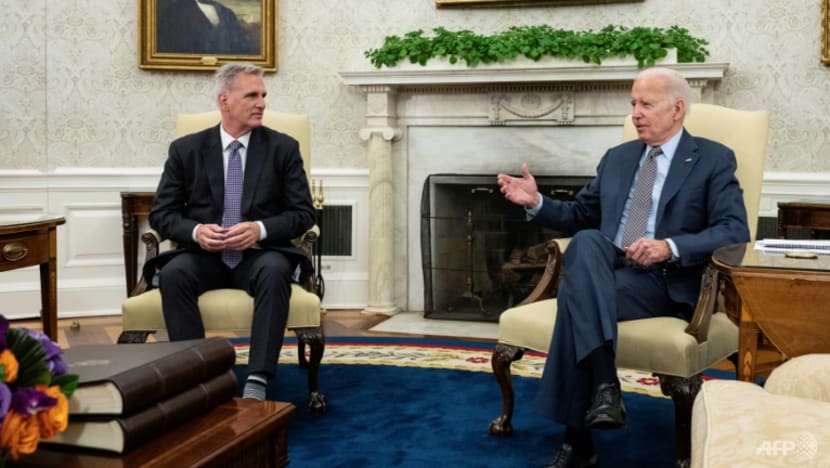WASHINGTON: Negotiators for Democratic President Joe Biden and top congressional Republican Kevin McCarthy held what both sides called productive talks on Wednesday (May 24) to try to reach a deal to raise the United States' US$31.4 trillion debt ceiling and avoid a catastrophic default.
After a four-hour White House meeting, McCarthy said negotiations had improved and would continue in the evening. He predicted the two sides would reach an agreement, though several issues remain unresolved.
"We've made some progress working down there. So that's very positive," McCarthy told reporters. "I want to make sure we get the right agreement. I can see that we're working towards that."
White House spokesperson Karine Jean-Pierre said talks remain fruitful.
"If it keeps going in good faith, we can get to an agreement here," she said at a briefing while discussions were taking place.
But the White House and congressional Democrats also accused Republicans of taking the economy hostage to advance an agenda they could otherwise not pass. They said Republicans need to make more concessions as they will need Democratic votes to pass any deal.
"Just listen to members of The House Freedom Caucus ... now openly referring to the full faith and credit of the United States as a hostage," Jean-Pierre, the White House spokesperson, said.
Time is running short, as the Treasury Department has warned the federal government could be unable to pay all its bills by as soon as June 1 - just eight days away - and it will take several days to pass legislation through the narrowly divided Congress.
House Republican leaders said they would adjourn on Thursday for a week-long Memorial Day holiday recess scheduled but would call lawmakers back if needed for any votes, Punchbowl News reported.
McCarthy has insisted that any deal must not raise taxes and must cut discretionary spending, not hold it steady as Biden has proposed.
Any deal that Biden and McCarthy reach will have a narrow path for passage through the divided Congress, where McCarthy's Republicans hold a 222-213 House majority and Biden's Democrats control the Senate by a 51-49 margin.
The lack of progress has heightened concerns that Congress could inadvertently trigger a crisis by failing to act in time.
"We're certainly getting to a place that's too close for comfort," said Shai Akabas of the Bipartisan Policy Center, a think tank.
Ratings agency Moody's might change its assessment of US debt if lawmakers indicate a default is expected. Moody's currently has a top-notch "Aaa" rating for US debt, while rival rating agency S&P Global lowered its rating following a 2011 debt-ceiling showdown. A lower rating could push up borrowing costs.
